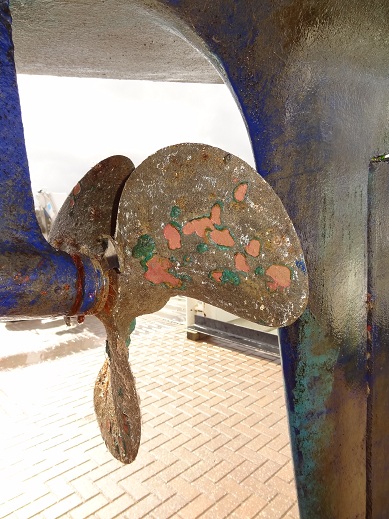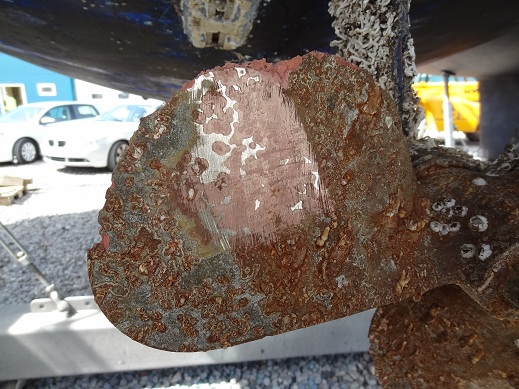Are your Anodes Working? Dezincification!
Hamble Marine Surveys recentlly inspected a propeller during a Pre-Purchase Survey with clear signs of Dezincification due to the absence of suitable anodes and those anodes present being incorrectly bonded.
Do you have adequate anodes in the correct location on your hull and are they correctly bonded? An interesting question and I am sure one which many boat owners do not know the answer to.
Zinc anodes (if the vessel is to be used in a marine environment) should be located relative to the areas of the vessel and her installed systems that require protection. They also need to be electrically bonded to the metal they are to protect.
Ultimately different metals react and corrode at different rates when placed in a electrolyte (seawater). Metals of a high suseptability to react will corrode. Bronze alloy for instance is very low down on the list of metal reactivity whereas brass and stainless steel alloys and off-course zinc are very high. The use of a sacrificial metal to waste in preference to one that needs protection is the goal of anodes. Anodes however need to be electrcially connected to the metal they are there to protect. A propeller for instance that is not electrically connected to a anode will not be protected by that anode even if the anode is position close to the propeller.
Sadly many vessel are damaged by the effects of electrolysis due to inadequte anodes or those anodes being incorrectly bonded.
In these two cases the propellers did not have an anode connected to the shaft and those anodes that were present were not bonded to the shaft correctly. A new propeller will be required at some point in the future as the zinc has been leeched out of the alloy leaving a copper rich alloy which is weak and brittle. On the lower image the blade was shattered when struck by a hammer.
If you are concerned about the anodes and electrical bonding about your vessel then please contact Hamble Marine Surveys for advice.

